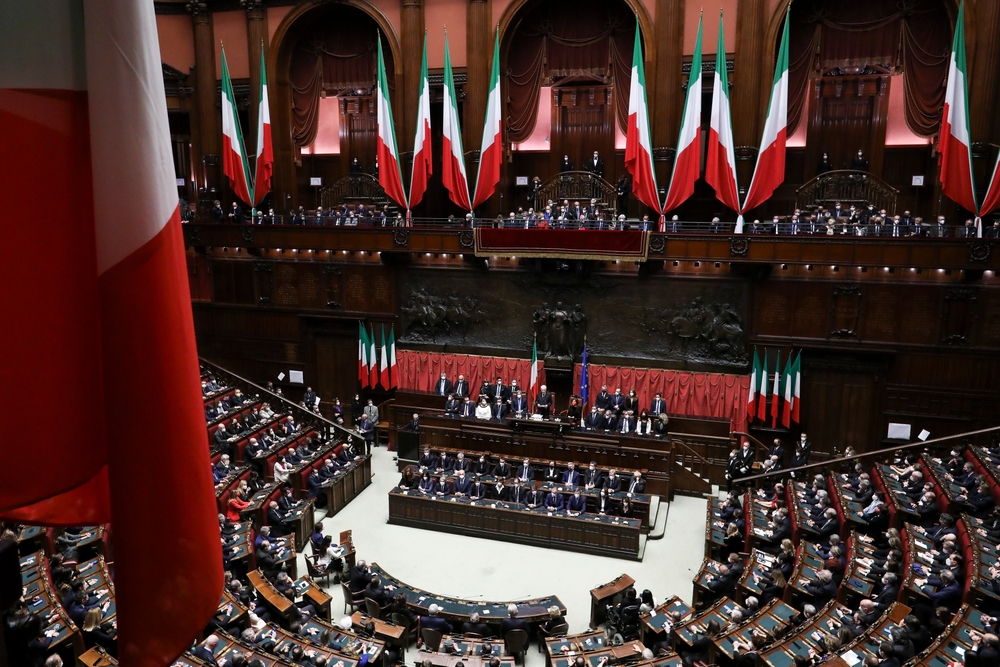Parliamentary Work Halted Amid Controversy Over Libyan Soldier’s Release
On Wednesday, the Italian Parliament suspended its sessions until next Tuesday, primarily due to the backlash following the controversial release of Libyan soldier Njeem Osama Almasri. The uproar was sparked by Interior Minister Matteo Piantedosi and Justice Minister Carlo Nordio’s unexpected cancellation of their scheduled briefings regarding the Almasri case, citing ongoing judicial investigations involving themselves and Prime Minister Giorgia Meloni. This disruption also postponed the election of four constitutional court judges, already mired in political indecision for over a year. The situation reflects broader concerns about transparency and government accountability, as opposition parties criticized the administration’s handling of the matter while some members of the ruling coalition found themselves relieved by the pause in legislative activities.
Legal Controversy Surrounds Libyan Arrest and Expulsion to Tripoli
On January 21, the Italian Ministry of Justice announced the International Criminal Court’s (ICC) request for the arrest of Libyan citizen Najeem Osema Almasri Habish, the head of Libya’s judicial police. As the Justice Minister Carlo Nordio evaluated the request, an Italian state plane was already set to depart for Tripoli with Almasri on board. This situation raised significant inconsistencies, as key government officials had decided hours earlier to return Almasri to Libya, despite the ongoing evaluation of his arrest. Almasri, who traveled extensively across Europe prior to his arrest on January 19, faced serious accusations related to human rights violations while managing a detention center in Libya. As the government considered invoking state secrecy over the case to mitigate controversies, questions arose about the handling of his arrest, legal representation, and the ICC’s timing in issuing the warrant just as Almasri entered Italy. Ultimately, the Court ruled the arrest procedure “irregular,” leading to Almasri’s release, further complicating the government’s narrative.
Italian Privacy Authority Restricts Chinese Chatbot DeepSeek Over Data Concerns
On Thursday, Italy’s privacy authority issued a restriction on the processing of user data by Chinese companies Hangzhou DeepSeek Artificial Intelligence and Beijing DeepSeek Artificial Intelligence, which provide the recently discussed DeepSeek chatbot service. This follows a similar situation with ChatGPT. The ruling means DeepSeek cannot legally operate in Italy until it aligns its user data processing policies with European and Italian laws, as the authority found that the companies believed these laws did not apply to them. Additionally, an investigation has been initiated, reminiscent of the inquiry launched against ChatGPT in March 2023, which raised suspicions about illegal collection of personal data from Italian users.
Italian Ex-MEP and Journalist Detained in West Bank for Unauthorized Entry
On Thursday, former European Parliament member Luisa Morgantini and Sole 24 Ore journalist Roberto Bongiorni were arrested in Tuba, south of Hebron, during a reporting assignment on Israeli settlements. They were briefly detained at a police station in the Israeli settlement of Kiryat Arba before being released a few hours later. The Italian Foreign Ministry confirmed their release, stating they were accused of entering a restricted Israeli military zone without authorization. The West Bank is considered Palestinian territory by the international community, but it has been under illegal Israeli occupation for decades due to settlement construction, which violates international law. Morgantini, a well-known pacifist activist, served as an independent MEP from 1999 to 2009 with the Communist Refoundation party, part of the European Left group.
Efforts Underway to Manage Tourism Surge at the Tre Cime di Lavaredo
The Tre Cime di Lavaredo, among the most popular mountains in the Dolomites, attract tens of thousands of visitors annually, with daily numbers peaking at 14,000 on Ferragosto. Local municipalities, including Auronzo di Cadore and five others in South Tyrol, are considering measures to address “overtourism” and its negative impacts, such as traffic congestion, unauthorized parking, and environmental degradation. A recent online petition garnered over 35,000 signatures to close the main access road to private vehicles, prompting discussions on increasing tolls, implementing reservation systems, and improving public transportation. Auronzo di Cadore has also proposed building a cable car to reduce car traffic. Coordinated efforts among local leaders, supported by the Dolomiti Unesco Foundation, are essential to develop a sustainable plan for managing the area’s visitor influx.

